Biomedical Engineering Senior Design Projects
Students in the Department of Biomedical Engineering complete a three-semester design sequence starting in the spring of their junior year. Guided by experienced faculty with diverse research interests, students will design, develop, and test a biomedical device while learning to work as a team, navigate budget and other real-world constraints, and effectively present their ideas to others. Projects are supported by faculty, industry, and/or non-profit mentors and cover a range of biomedical applications. Customer discovery and human-centered design skills are added to the students’ design tool kit, facilitating iterative design processes seen in professional design contexts.
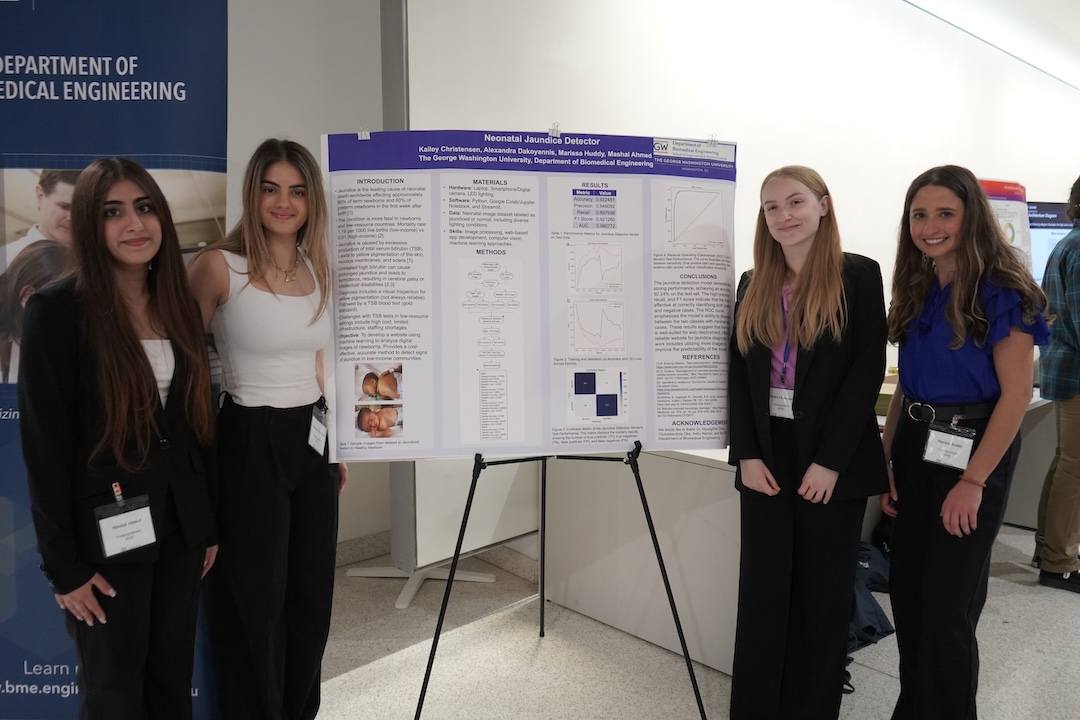
Jaundice Tracker
Jaundice, which occurs due to excessive bilirubin levels in the body, is particularly prevalent among newborns worldwide. This project aims to expand early jaundice detection for rural and low-income communities by developing methods that can be accessed on a smartphone or computer.
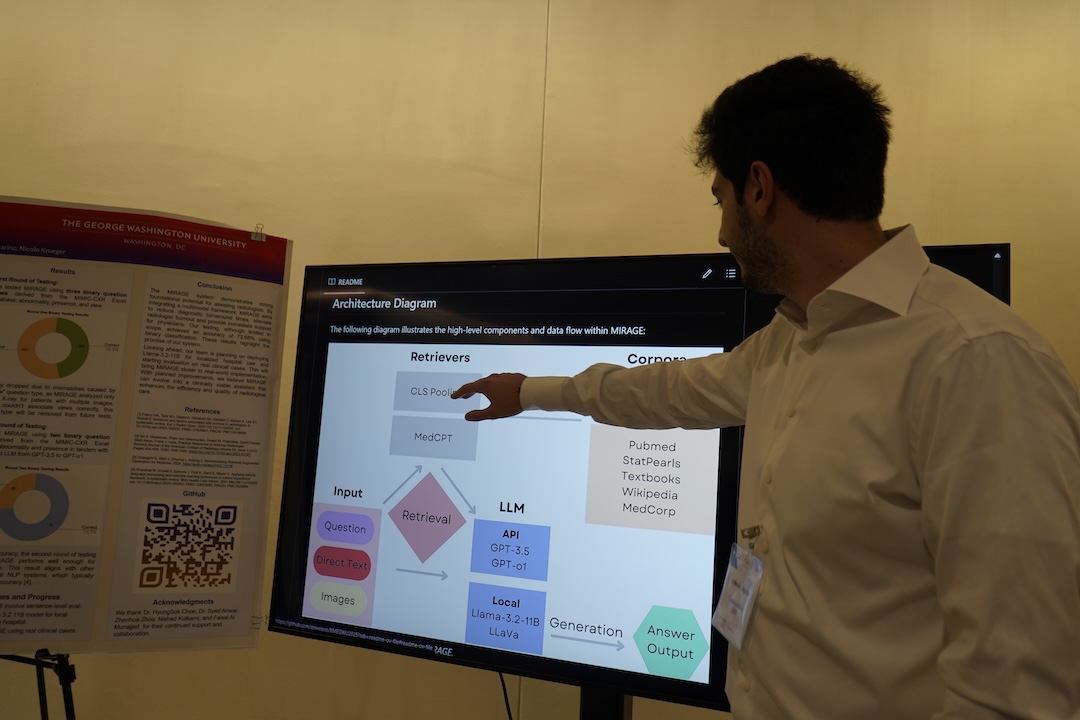
MIRAGE
Many patients presenting to hospital emergency rooms require imaging for diagnosis, which presents a barrier to care due to lack of qualified physicians and the substantial workloads faced by radiologists. MIRAGE aims to remove that barrier by providing nurses and medical fellows an accurate and accessible AI tool to help them take immediate action for their patients while awaiting further physician review.
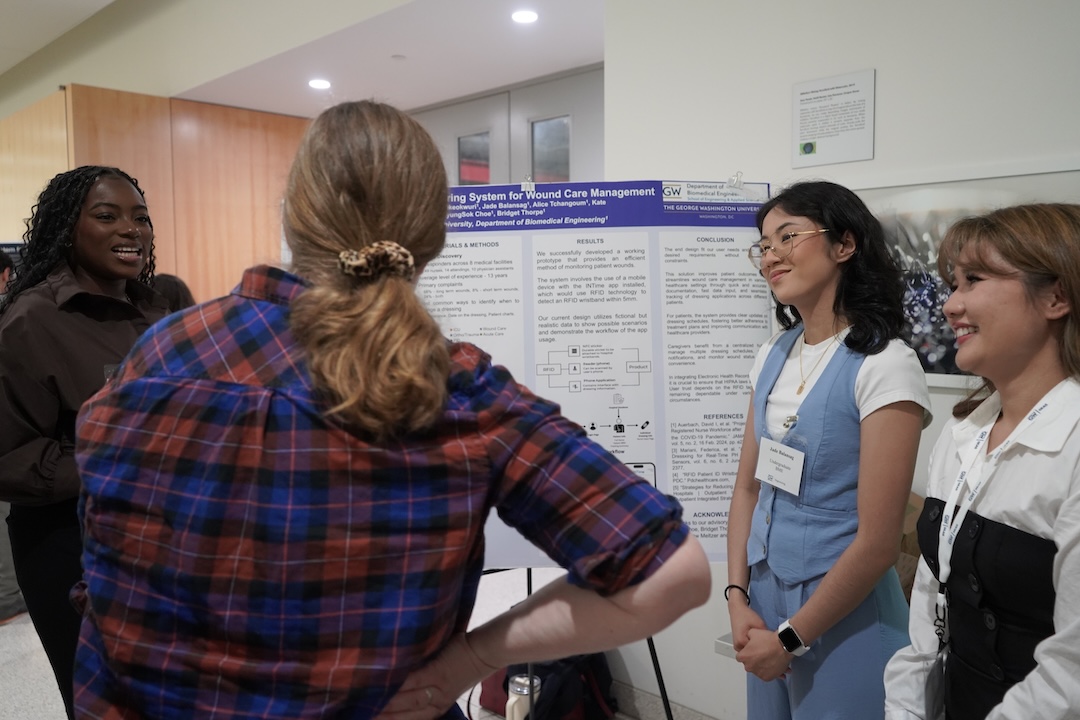
Affordable Timer
Wound care is a vital practice across many health care fields, and nurses are regularly required to care for wounds even though they may not have specialized in wound care. Affordable Time provides a way for nurses, patients, and other stakeholders to quickly identify if a patient’s dressing is due for changing, reducing the risk of infection and promoting quality care.
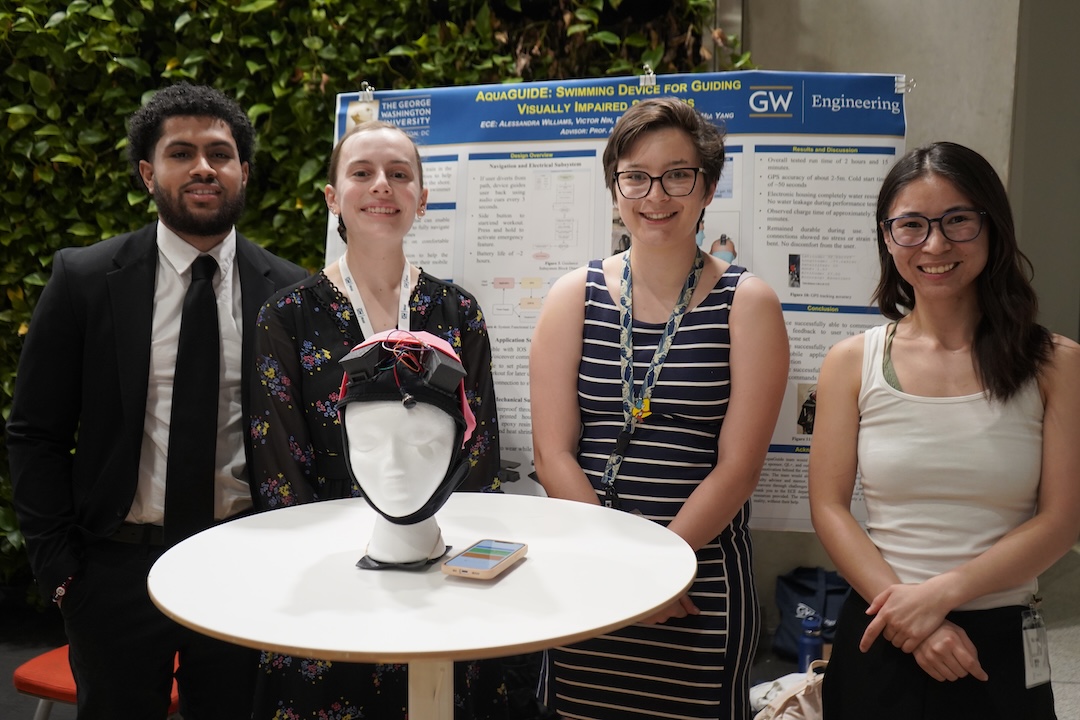
AquaGUIDE
Visually impaired swimmers face significant challenges when trying to swim independently. Current solutions rely on third-party assistants providing guidance through touch, which are infeasible in open-water conditions and limit the swimmer’s autonomy. Our project addresses these issues by developing a swim cap to guide swimmers through audio feedback, enabling them to swim safely and independently. AguaGUIDE is an interdisciplinary team across BME and ECE.
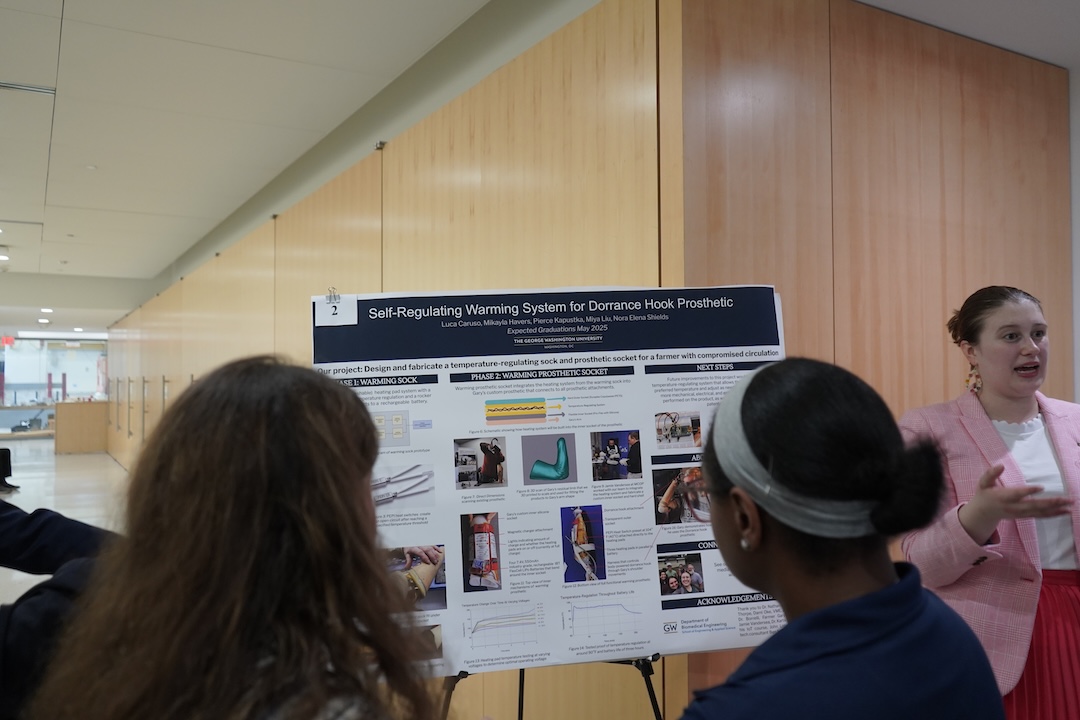
Warming All-Purpose Sock (WAPSAP)
5.6 million individuals in the United States have limb loss or limb difference, and many of them experience decreased circulation. Working with a client in Maryland, our project seeks to develop two medical devices to address the cold discomfort stemming from circulation issues: one warming sock to be worn around the house and one warming prosthetic sock to be worn when working. WAPSAP is an interdisciplinary project across BME and MAE.

